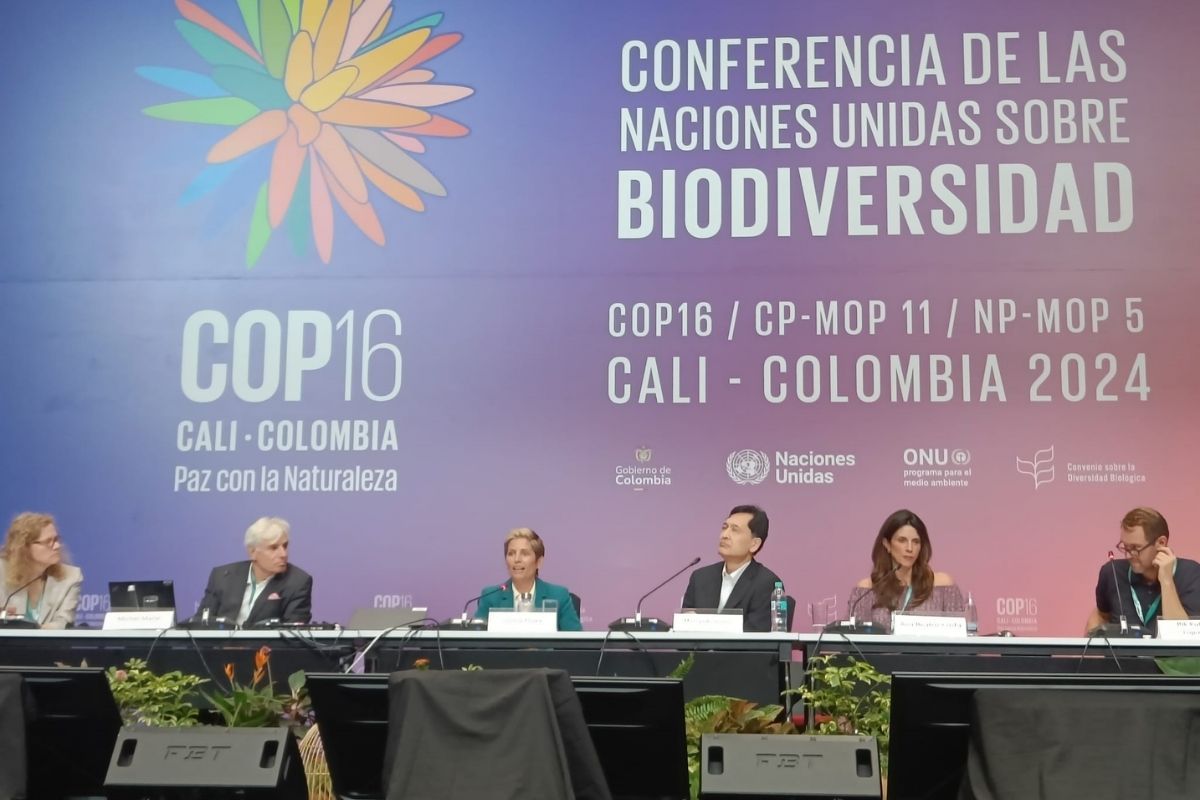The world’s largest nature conservation conference, COP16, concluded Saturday in Cali, Colombia, after intense negotiations that stretched nearly 12 hours past schedule. The meeting ended without agreeing on a crucial global species protection financial roadmap. COP16 president Colombian Environment Minister Susana Muhamad suspended the summit due to a lack of quorum as delegates began departing for their flights.
The two-week United Nations Conference on Biological Diversity, COP16, gathered 23,000 delegates from 200 countries. This meeting aimed to advance the 2022 Kunming-Montreal Global Diversity Framework to reverse human-driven ecological decline by 2030. The framework includes objectives like conserving 30% of global land and sea areas and reducing pollution. Wealthy nations committed to providing $20 billion annually for biodiversity conservation to developing countries by 2025, increasing it to $30 billion by 2030.
COP16 aimed to secure a detailed funding plan to strengthen conservation efforts. However, negotiations stalled due to divides between wealthier and poorer countries over financial commitments. Talks continued overnight from Friday into Saturday morning, past the planned closing.
Delegates from Panama and Fiji highlighted logistical challenges, with many needing to leave due to pre-scheduled flights. The Panamanian representative noted he was the last member of his ten-person team remaining, while the Fijian delegate pointed out that smaller countries lack the resources for last-minute travel adjustments.
Teams of advisors surrounded European Union negotiators, while smaller countries’ representatives, including those from Panama and Fiji, sat among empty seats. When a headcount confirmed the absence of a quorum, Minister Muhamad suspended the plenary session.
Despite the financial stalemate, COP16 achieved significant outcomes, notably establishing a permanent advisory body for Indigenous peoples to guide issues pertinent to Indigenous communities and local populations. This marked a significant milestone and the first major breakthrough at the summit.
“This is an unprecedented moment in the history of multilateral environmental agreements,” said Camila Romero, an Indigenous representative from Chile. “Parties have recognized the need for our full participation, knowledge, innovations, technology, and traditional practices,” she told delegates after the decision was adopted.
Throughout the night, delegates approved measures recognizing Indigenous and Afro-descendant knowledge. However, the most contentious issue—mobilizing financial resources, including a proposal for a new biodiversity fund independent of the Global Environment Facility (GEF)—remained unresolved. Developing nations expressed dissatisfaction with the GEF’s current management, citing governance concerns involving non-member nations like the United States.
Countries like Canada, the European Union, and Switzerland opposed creating a new fund. The Swiss delegate argued the proposal was “premature” and suggested revisiting it at COP18, four years from now.
As tensions rose, Brazil, a strong ally of Colombia during the summit, requested a quorum check. This revealed an insufficient number of delegates to continue, forcing Muhamad to suspend the session.
The suspension doesn’t end the negotiations. A new date and venue, potentially virtual, will need to be set to finalize discussions. The decisions made before the suspension remain valid, marking progress despite the abrupt end.
The Colombian Ministry of Environment expressed optimism via social media: “After over 13 hours of intense plenary and a day of negotiations, we close a historic day at COP16 Colombia.”
The unfinished financial discussions highlight the challenges of global environmental diplomacy. With COP16 as the longest biodiversity COP in history, the summit leaves a dual legacy of significant achievements and unresolved issues.
Support us to keep independent environmental journalism alive in India.
Keep Reading
Govt shelves elephant census, population drops 20% in 5 years
Wildlife SOS mourns passing of Suzy, 74, oldest rescued Elephant
Asian Elephants display complex mourning rituals similar to humans: study
Asian Elephant populations threatened by rapid ecosystem decline
Follow Ground Report on X, Instagram and Facebook for environmental and underreported stories from the margins. Give us feedback on our email id greport2018@gmail.com.
Don’t forget to Subscribe to our weekly newsletter, Join our community on WhatsApp, and Follow our YouTube Channel for video stories.






